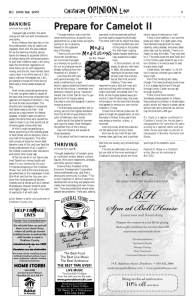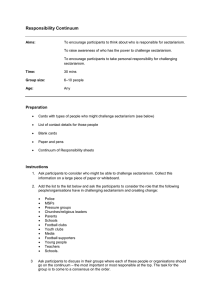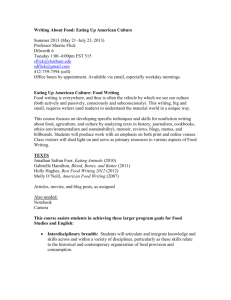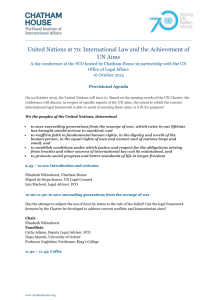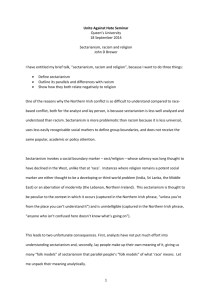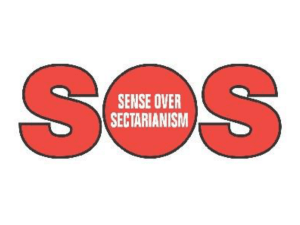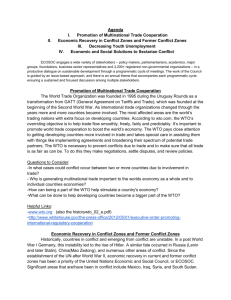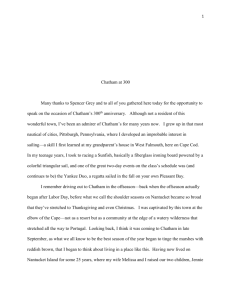Agenda pdf - Chatham House
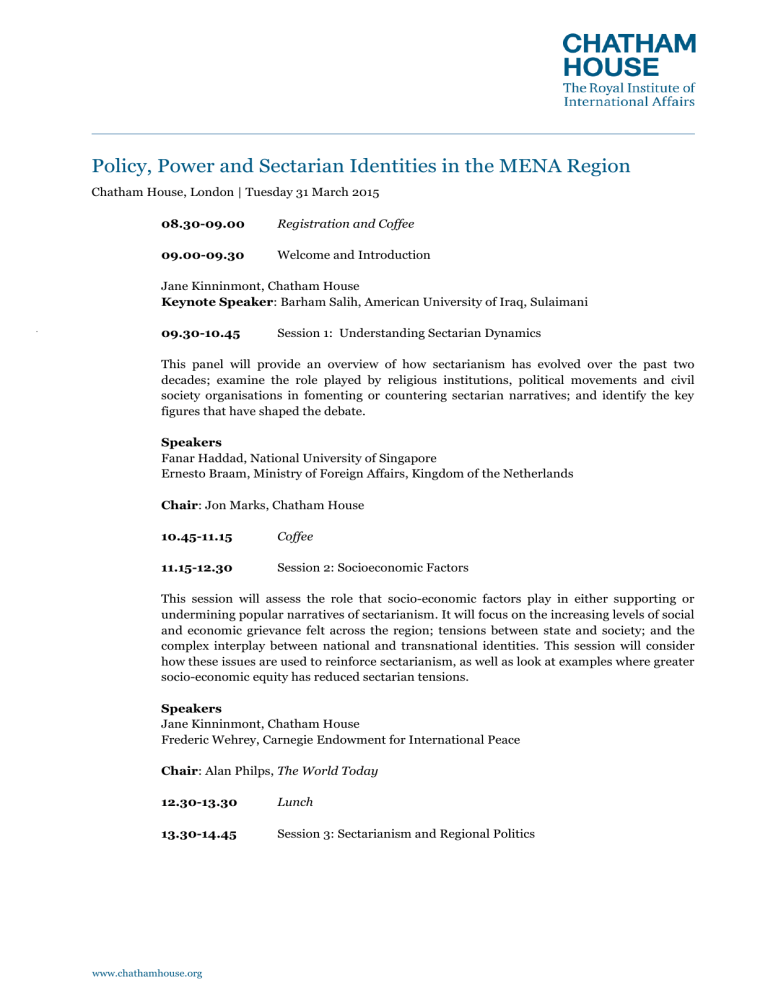
Policy, Power and Sectarian Identities in the MENA Region
Chatham House, London | Tuesday 31 March 2015
Registration and Coffee 08.30-09.00
09.00-09.30 Welcome and Introduction
Jane Kinninmont, Chatham House
Keynote Speaker : Barham Salih, American University of Iraq, Sulaimani
09.30-10.45 Session 1: Understanding Sectarian Dynamics
This panel will provide an overview of how sectarianism has evolved over the past two decades; examine the role played by religious institutions, political movements and civil society organisations in fomenting or countering sectarian narratives; and identify the key figures that have shaped the debate.
Speakers
Fanar Haddad, National University of Singapore
Ernesto Braam, Ministry of Foreign Affairs, Kingdom of the Netherlands
Chair : Jon Marks, Chatham House
10.45-11.15 Coffee
11.15-12.30 Session 2: Socioeconomic Factors
This session will assess the role that socio-economic factors play in either supporting or undermining popular narratives of sectarianism. It will focus on the increasing levels of social and economic grievance felt across the region; tensions between state and society; and the complex interplay between national and transnational identities. This session will consider how these issues are used to reinforce sectarianism, as well as look at examples where greater socio-economic equity has reduced sectarian tensions.
Speakers
Jane Kinninmont, Chatham House
Frederic Wehrey, Carnegie Endowment for International Peace
Chair : Alan Philps, The World Today
12.30-13.30
13.30-14.45
Lunch
Session 3: Sectarianism and Regional Politics www.chathamhouse.org
Page 2 of 2
This panel will examine the role played by states, non-state actors, religious bodies and others, in instrumentalising sectarianism to pursue their wider domestic and regional objectives.
Speakers
Edward Mortimer, University of Oxford
Craig Larkin, King’s College London
Hayder al-Khoei, Chatham House
Chair : Jane Kinninmont, Chatham House
14.45-15.15 Coffee
15.15-16.30
Session 4: Contesting Sectarian Representations in the Media
This panel will analyse how sectarian conflict is portrayed in the media and the role this plays in informing public debate on the issue. It will also consider the impact that both regional and international media institutions can have either in reinforcing or countering exclusionary identity politics.
Speakers
Nour Eddine Zorgui, BBC Arabic
Nazenin Ansari, Kayhan Publishing
Zahera Harb, City University London
Chair : Mina Al-Oraibi, Asharq Al-Awsat Newspaper
16.30-17.30 Session 5: Solutions and Recommendations
This session will focus on what counter-measures can be taken in terms of policies and actions. Where have attempts at conflict resolution been made and have they had a positive impact?
Speakers
Yousif al-Khoei, Al-Khoei Foundation
Anas Altikriti, Cordoba Foundation
Greg Shapland, Sussex University
Chair : Claire Spencer, Chatham House
With thanks to the Al-Swaidi family and the following sponsors
